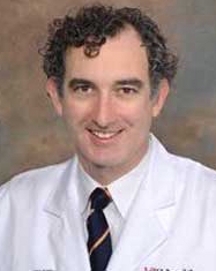On a chilly December night, Bill woke up drenched in sweat—a sign that something was off, but he shrugged it off as nothing serious. After sitting in the living room for a while, he felt fine and returned to bed. The next morning, during his usual call with his daughter, she encouraged him to check his blood pressure. Bill, who typically had high readings, was surprised to find his blood pressure extremely low. Concerned, he decided to monitor the situation for another day, agreeing that if his blood pressure remained low, he would visit the hospital.
Patient Stories
An LVAD Patient Story
Follow Bill's journey from alarming heart failure symptoms to renewed hope, thanks to the power of mechanical circulatory support technology.

Recognizing the Symptoms of Advanced Heart Failure
Bill's condition had advanced to what doctors referred to as end-stage heart failure, where his heart could no longer pump blood efficiently to meet his body's needs. This condition often requires more aggressive treatments, such as LVAD surgery or even heart transplant.
Advanced Heart Care at UC Health
The following morning, Bill’s blood pressure was still low, and he made the decision to head to the hospital, choosing UC Health West Chester. Upon arrival, he explained his symptoms to the staff. After a series of tests, he received shocking news: he had suffered a silent heart attack just days prior. The medical team quickly admitted him for further evaluation and treatment.
Bill learned that his condition was more serious than initially thought. His main artery was 90% blocked, and the doctors decided that he needed a more aggressive intervention. They planned to transfer him downtown to UC Medical Center for a procedure.
UC Health is renowned for its specialized heart care, offering comprehensive treatments for heart failure patients, from medical therapy to complex surgeries like LVAD implantation and heart transplantation.
Once at UC Medical Center, Bill underwent a procedure to place three stents in his heart. Unfortunately, due to the damage done from the heart attack, the stents were not enough to stabilize his condition. His heart was so weak, and blood flow was so restricted thathis internal organs were failing. Bill required the implantation of two heart pumps to take over the work of his heart. These pumps, called mechanical circulatory support, temporarily take over for the heart to allow recovery. In a matter of days, Bill was strong enough to undergo the implantation of a Left Ventricular Assist Device (LVAD). With the help of the LVAD therapy, Bill could return home and get back to his active life.
“I remember the night that he arrived very clearly,” shared Dr. Jennifer Cook, Director of Heart Failure and Heart Transplant. “Bill was the first patient in Cincinnati to receive an RP Flex Device, invented to support the right side of the heart during a heart attack. With the support of that device, his body became strong enough to receive an LVAD.”
Bill's care was part of UC Health's ongoing commitment to innovative treatments. The RP Flex Device was introduced as part of a clinical trial to assess its effectiveness in supporting patients with right heart failure.
After the LVAD surgery, Bill spent time on a ventilator while his heart adapted to the LVAD. Despite the severity of the situation, he experienced no pain at the incision site and was grateful for the excellent care he received from the medical team. After seven weeks in the hospital, he was finally well enough to be transferred to a rehabilitation facility for further recovery.
Life with an LVAD: A Journey of Recovery
While in rehab at the Drake Center, Bill worked hard to regain his strength. He had been bedridden for weeks and was experiencing significant fluid retention, which left him with little muscle control in his legs. With dedication and the support of the rehab staff, Bill progressed from using a walker to walking independently. By mid-February, he was back home, feeling stronger every day.
Reflecting on his journey, Bill expressed deep gratitude for the medical team, particularly Dr. Cook and Dr. Louis Louis, Division Chief of Cardiac Surgery, who guided him through this challenging time. “I felt like the most important patient in the hospital,” he recalled, mentioning the high level of care he received from the many doctors and nurses who treated him. Bill and his family are thankful every day for the life-saving care he received, allowing them to create more cherished memories together.
Today, Bill is doing remarkably well, walking regularly and adjusting to life like many other LVAD patients who have received care at UC Health.. While he still faces some limitations, he is committed to his recovery and optimistic about the future. Bill’s story is a testament to the power of early intervention, exceptional medical care, and the resilience of the human spirit.
